Northland, North Auckland, West Auckland, South Auckland, Hawke's Bay, Lakes, MidCentral, Tairāwhiti > Private Hospitals & Specialists >
Canopy Imaging
Private Service, Radiology, Pregnancy Ultrasound
Today
4 Murray Place, Camberley, Hastings
8:30 AM to 5:00 PM.
Description
Our focus is on combining state-of-the-art technology with the leading sub-specialty skills of our staff, ensuring expert clinical imaging and diagnosis. Canopy Imaging also believes in providing nothing less than outstanding customer service to our patients.
| Xray | Ultra Sound |
CT Scan | CT Colono-graphy |
MRI | Bone Density | Mammo-graphy | Pregnancy Imaging | Angio-graphy | Steroid Injections | Special Procedures | Molecular Imaging | |
| Kerikeri | ● | ● | ● | ● | ||||||||
| Kensington, Whangārei |
● | ● | ● | ● | ● | ● | ● | ● | ● | |||
| Reyburn, Whangārei | ● | ● | ||||||||||
| Greville Rd | ● | ● | ● | |||||||||
| Milford | ● | ● | ● | ● | ● | ● | ● | ● | ● | |||
| Smales Farm | ● | ● | ● | |||||||||
| Lincoln Rd, Henderson | ● | ● | ● | ● | ● | ● | ||||||
| Ormiston Hospital | ● | ● | ● | ● | ● | ● | ● | |||||
| Ormiston Medical Centre (211 Ormiston Rd) | ● | ● | ||||||||||
| Hastings - Royston Centre (Prospect Rd) | ● | ● | ● | ● | ● | ● | ● | ● | ● | ● | ||
| Hastings - Hastings Health Centre (St Aubyn St WW) | ● | ● | ● | |||||||||
| Hastings- Hawke's Bay Regional Sports Park | ● | ● | ● | |||||||||
| Kaweka Hospital, Hastings | ● | ● | ● | ● | ||||||||
| Murray Place, Napier | ● | ● | ● | ● | ● | |||||||
| Ahurir, Napier | ● | ● | ● | ● | ||||||||
| 4 Murray Place | ● | |||||||||||
| Tutanekai St, Rotorua | ● | ● | ● | ● | ||||||||
| Haupapa St, Rotorua | ● | ● | ● | ● | ● | ● | ● | |||||
| Taupō | ● | ● | ● | ● | ||||||||
| 175 Grey Street | ● | ● | ● | ● | ● | |||||||
| 22 Victoria Avenue | ● | |||||||||||
| Te Pūtahi Ora Health Centre, Levin | ● | ● | ||||||||||
| 75 Customhouse Street Gisborne |
● | ● | ● | ● |
Consultants
-

Dr Mike Baker
Radiologist
-
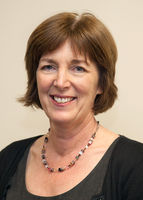
Dr Gillian Beveridge
Radiologist
-

Dr Christopher Bowles
Radiologist
-

Dr Qi Chou
Radiologist
-
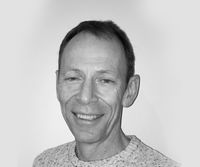
Dr Nicholas Cochrane
Radiologist
-

Dr Neil Dawber
Radiologist
-

Dr Charlotte De Wilde
Radiologist
-

Dr Andrew Dunkley
Radiologist
-
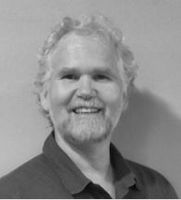
Dr Lance Faber
Radiologist
-

Dr Jee Fan
Radiologist
-

Dr Stephen Gock
Radiologist
-

Dr Martin Gunn
Radiologist
-

Dr Frederik Holdt
Radiologist
-

Dr Alex Ivancevic
Obstetrician & Gynaecologist
-
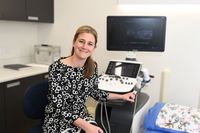
Dr Jeanie Jennings
Radiologist
-

Dr Helen Jo
Radiologist
-

Dr Mohamed Junaid
Radiologist
-

Dr Anthea Liebenberg
Radiologist
-

Dr Sean McIlhone
Radiologist
-

Dr Rustain Morgan
Radiologist
-

Dr Carla Morkel
Radiologist
-

Dr Richard Ng
Radiologist
-

Dr Toby Robins
Radiologist
-

Dr Ricky Rutledge
Radiologist
-

Dr Adrian Schankath
Radiologist
-
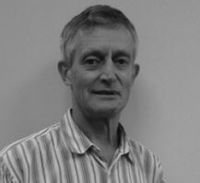
Dr Kevin Scott
Radiologist
-

Dr Daniel Gierhake
Radiologist
-

Dr Grant Thompson
Musculoskeletal Physician
-

Dr Matthew Turei
Radiologist
-
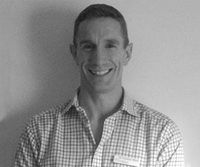
Dr Andrew West
Radiologist
-

Dr Luke Wheeler
Radiologist
-

Dr Francis Wu
Radiologist
-

Dr Rita Yang
Plastic & Reconstructive Surgeon
-
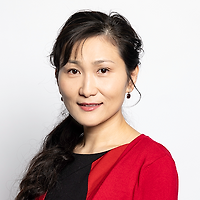
Dr Jean Zhou
Radiologist
Ages
Child / Tamariki, Youth / Rangatahi, Adult / Pakeke, Older adult / Kaumātua
How do I access this service?
Referral
Walk in
No appointment is needed for X-rays. Walk in any time Monday to Friday, 9am - 2pm
Make an appointment
Appointments are needed for Ultrasounds. Appoinments available Monday to Friday, 8.30am - 4.30pm
Fees and Charges Categorisation
Fees apply
Fees and Charges Description
Canopy Imaging is a Southern Cross Affiliated Provider for a range of radiology procedures. Please contact us to find out more and how we support your claim.
Hours
4 Murray Place, Camberley, Hastings
8:30 AM to 5:00 PM.
| Mon – Fri | 8:30 AM – 5:00 PM |
|---|
Languages Spoken
English
Procedures / Treatments
An MRI machine does not work like an X-ray or CT; it is used for exact images of internal organs and body structures. This method delivers clear images without the exposure of radiation. The procedure uses a combination of magnetic fields and radio waves which results in an image being made using the MRI’s computer. What to expect? You will have all metal objects removed from your body. You will lie down on a narrow padded moveable table that will be slid into the scanner, through a circular opening. You will feel nothing while the scan is in progress, but some people can feel slightly claustrophobic or closed in, whilst inside the scanner. You will be asked to remain still and hold your breath on command. There are staff present, but they will not necessarily remain in the room, but will speak with you via an intercom system and will be viewing the procedure constantly through a windowed control room, from where they will run the scanner. Some procedures will require Contrast Medium. Contrast medium is a substance that makes the image of the CT or MRI clearer. Contrast can be given by mouth, rectally, or by injection into the bloodstream. The scan time will vary depending on the type of examination required, but as a rule it will take around 30 minutes.
An MRI machine does not work like an X-ray or CT; it is used for exact images of internal organs and body structures. This method delivers clear images without the exposure of radiation. The procedure uses a combination of magnetic fields and radio waves which results in an image being made using the MRI’s computer. What to expect? You will have all metal objects removed from your body. You will lie down on a narrow padded moveable table that will be slid into the scanner, through a circular opening. You will feel nothing while the scan is in progress, but some people can feel slightly claustrophobic or closed in, whilst inside the scanner. You will be asked to remain still and hold your breath on command. There are staff present, but they will not necessarily remain in the room, but will speak with you via an intercom system and will be viewing the procedure constantly through a windowed control room, from where they will run the scanner. Some procedures will require Contrast Medium. Contrast medium is a substance that makes the image of the CT or MRI clearer. Contrast can be given by mouth, rectally, or by injection into the bloodstream. The scan time will vary depending on the type of examination required, but as a rule it will take around 30 minutes.
An MRI machine does not work like an X-ray or CT; it is used for exact images of internal organs and body structures. This method delivers clear images without the exposure of radiation.
The procedure uses a combination of magnetic fields and radio waves which results in an image being made using the MRI’s computer.
What to expect?
You will have all metal objects removed from your body. You will lie down on a narrow padded moveable table that will be slid into the scanner, through a circular opening.
You will feel nothing while the scan is in progress, but some people can feel slightly claustrophobic or closed in, whilst inside the scanner. You will be asked to remain still and hold your breath on command. There are staff present, but they will not necessarily remain in the room, but will speak with you via an intercom system and will be viewing the procedure constantly through a windowed control room, from where they will run the scanner.
Some procedures will require Contrast Medium. Contrast medium is a substance that makes the image of the CT or MRI clearer. Contrast can be given by mouth, rectally, or by injection into the bloodstream.
The scan time will vary depending on the type of examination required, but as a rule it will take around 30 minutes.
Ultrasound imaging, also called ultrasound scanning, is a method of obtaining pictures from inside the human body through the use of high frequency sound waves. Obstetric ultrasound refers to the specialised use of this technique to produce a picture of your unborn baby while it is inside your uterus (womb). The sound waves are emitted from a hand-held nozzle, which is placed on your stomach, and reflection of these sound waves is displayed as a picture of the moving foetus (unborn baby) on a monitor screen. No x-rays are involved in ultrasound imaging. Measurements of the image of the foetus help in the assessment of its size and growth as well as confirming the due date of delivery.
Ultrasound imaging, also called ultrasound scanning, is a method of obtaining pictures from inside the human body through the use of high frequency sound waves. Obstetric ultrasound refers to the specialised use of this technique to produce a picture of your unborn baby while it is inside your uterus (womb). The sound waves are emitted from a hand-held nozzle, which is placed on your stomach, and reflection of these sound waves is displayed as a picture of the moving foetus (unborn baby) on a monitor screen. No x-rays are involved in ultrasound imaging. Measurements of the image of the foetus help in the assessment of its size and growth as well as confirming the due date of delivery.
Ultrasound imaging, also called ultrasound scanning, is a method of obtaining pictures from inside the human body through the use of high frequency sound waves. Obstetric ultrasound refers to the specialised use of this technique to produce a picture of your unborn baby while it is inside your uterus (womb).
The sound waves are emitted from a hand-held nozzle, which is placed on your stomach, and reflection of these sound waves is displayed as a picture of the moving foetus (unborn baby) on a monitor screen.
No x-rays are involved in ultrasound imaging. Measurements of the image of the foetus help in the assessment of its size and growth as well as confirming the due date of delivery.
An X-ray is a high frequency, high energy wave form. It cannot be seen with the naked eye, but can be picked up on photographic film. Although you may think of an X-ray as a picture of bones, a trained observer can also see air spaces, like the lungs (which look black) and fluid (which looks white, but not as white as bones). What to expect? You will have all metal objects removed from your body. You will be asked to remain still in a specific position and hold your breath on command. There are staff present, but they will not necessarily remain in the room, but will speak with you via an intercom system and will be viewing the procedure constantly through a windowed control room. The examination time will vary depending on the type of procedure required, but as a rule it will take around 30 minutes.
An X-ray is a high frequency, high energy wave form. It cannot be seen with the naked eye, but can be picked up on photographic film. Although you may think of an X-ray as a picture of bones, a trained observer can also see air spaces, like the lungs (which look black) and fluid (which looks white, but not as white as bones). What to expect? You will have all metal objects removed from your body. You will be asked to remain still in a specific position and hold your breath on command. There are staff present, but they will not necessarily remain in the room, but will speak with you via an intercom system and will be viewing the procedure constantly through a windowed control room. The examination time will vary depending on the type of procedure required, but as a rule it will take around 30 minutes.
An X-ray is a high frequency, high energy wave form. It cannot be seen with the naked eye, but can be picked up on photographic film. Although you may think of an X-ray as a picture of bones, a trained observer can also see air spaces, like the lungs (which look black) and fluid (which looks white, but not as white as bones).
What to expect?
You will have all metal objects removed from your body. You will be asked to remain still in a specific position and hold your breath on command. There are staff present, but they will not necessarily remain in the room, but will speak with you via an intercom system and will be viewing the procedure constantly through a windowed control room.
The examination time will vary depending on the type of procedure required, but as a rule it will take around 30 minutes.
In ultrasound, a beam of sound at a very high frequency (that cannot be heard) is sent into the body from a small vibrating crystal in a hand-held scanner head. When the beam meets a surface between tissues of different density, echoes of the sound beam are sent back into the scanner head. The time between sending the sound and receiving the echo back is fed into a computer, which in turn creates an image that is projected on a television screen. Ultrasound is a very safe type of imaging; this is why it is so widely used during pregnancy. Doppler ultrasound A Doppler study is a noninvasive test that can be used to evaluate blood flow by bouncing high-frequency sound waves (ultrasound) off red blood cells. The Doppler Effect is a change in the frequency of sound waves caused by moving objects. A Doppler study can estimate how fast blood flows by measuring the rate of change in its pitch (frequency). A Doppler study can help diagnose bloody clots, heart and leg valve problems and blocked or narrowed arteries. What to expect? After lying down, the area to be examined will be exposed. Generally a contact gel will be used between the scanner head and skin. The scanner head is then pressed against your skin and moved around and over the area to be examined. At the same time the internal images will appear onto a screen.
In ultrasound, a beam of sound at a very high frequency (that cannot be heard) is sent into the body from a small vibrating crystal in a hand-held scanner head. When the beam meets a surface between tissues of different density, echoes of the sound beam are sent back into the scanner head. The time between sending the sound and receiving the echo back is fed into a computer, which in turn creates an image that is projected on a television screen. Ultrasound is a very safe type of imaging; this is why it is so widely used during pregnancy. Doppler ultrasound A Doppler study is a noninvasive test that can be used to evaluate blood flow by bouncing high-frequency sound waves (ultrasound) off red blood cells. The Doppler Effect is a change in the frequency of sound waves caused by moving objects. A Doppler study can estimate how fast blood flows by measuring the rate of change in its pitch (frequency). A Doppler study can help diagnose bloody clots, heart and leg valve problems and blocked or narrowed arteries. What to expect? After lying down, the area to be examined will be exposed. Generally a contact gel will be used between the scanner head and skin. The scanner head is then pressed against your skin and moved around and over the area to be examined. At the same time the internal images will appear onto a screen.
In ultrasound, a beam of sound at a very high frequency (that cannot be heard) is sent into the body from a small vibrating crystal in a hand-held scanner head. When the beam meets a surface between tissues of different density, echoes of the sound beam are sent back into the scanner head. The time between sending the sound and receiving the echo back is fed into a computer, which in turn creates an image that is projected on a television screen. Ultrasound is a very safe type of imaging; this is why it is so widely used during pregnancy.
Doppler ultrasound
A Doppler study is a noninvasive test that can be used to evaluate blood flow by bouncing high-frequency sound waves (ultrasound) off red blood cells. The Doppler Effect is a change in the frequency of sound waves caused by moving objects. A Doppler study can estimate how fast blood flows by measuring the rate of change in its pitch (frequency). A Doppler study can help diagnose bloody clots, heart and leg valve problems and blocked or narrowed arteries.
What to expect?
After lying down, the area to be examined will be exposed. Generally a contact gel will be used between the scanner head and skin. The scanner head is then pressed against your skin and moved around and over the area to be examined. At the same time the internal images will appear onto a screen.
Disability Assistance
Wheelchair access, Wheelchair accessible toilet, Mobility parking space
Online Booking URL
Parking
Parking is available on site.
Pharmacy
Website
Contact Details
4 Murray Place, Camberley, Hastings
Hawke's Bay
8:30 AM to 5:00 PM.
-
Phone
(06) 873 1166
Email
Website
4 Murray Place
Camberley
Hastings
Hawke's Bay 4120
Street Address
4 Murray Place
Camberley
Hastings
Hawke's Bay 4120
1381 State Highway 10, Kerikeri
Northland
8:30 AM to 4:30 PM.
-
Phone
(09) 407 6222
-
Fax
(09) 407 6342
Email
Website
11 Kensington Ave, Whangārei
Northland
8:00 AM to 4:30 PM.
-
Phone
(09) 437 0540
Email
Website
34-48 Reyburn Street, Whangārei
Northland
9:00 AM to 5:00 PM.
-
Phone
(09) 437 0549
Email
Website
50 Greville Road, Pinehill, Auckland
North Auckland
8:00 AM to 6:00 PM.
-
Phone
09 487 2555
Email
Website
209 Shakespeare Road, Milford, Auckland
North Auckland
8:30 AM to 5:00 PM.
-
Phone
09 487 2555
Email
Website
Smales Farm Technology Office Park, 74 Taharoto Road, Takapuna, Auckland
North Auckland
8:00 AM to 10:00 AM.
-
Phone
09 487 2555
Email
Website
131 Lincoln Road, Henderson, Auckland
West Auckland
8:30 AM to 6:00 PM.
-
Phone
09 487 2555
Email
Website
Ormiston Hospital Specialist Centre & Consulting Suites, 125 Ormiston Road, Flat Bush, Auckland
South Auckland
8:00 AM to 5:00 PM.
Website
211 Ormiston Road, Flat Bush, Auckland
South Auckland
8:30 AM to 5:00 PM.
-
Phone
09 487 2555
Email
Website
Royston Centre, 325 Prospect Road, Hastings
Hawke's Bay
7:15 AM to 5:00 PM.
-
Phone
(06) 873 1166
Email
Website
303 St Aubyn Street West, Hastings
Hawke's Bay
8:00 AM to 5:00 PM.
-
Phone
(06) 873 1166
Email
Website
42 Percival Road, Tomoana, Hastings
Hawke's Bay
8:30 AM to 5:00 PM.
-
Phone
(06) 873 1166
Email
Website
Kaweka Specialist Centre, 209 Canning Road, Hastings
Hawke's Bay
8:00 AM to 5:00 PM.
-
Phone
06 873 1166
Email
Website
522 Kennedy Road, Greenmeadows, Napier
Hawke's Bay
8:00 AM to 5:00 PM.
-
Phone
(06) 845 3306
Email
Website
18 Ossian Street, Ahuriri, Napier
Hawke's Bay
8:00 AM to 5:00 PM.
-
Phone
(06) 845 3306
Email
Website
1165 Tutanekai Street, Rotorua
Lakes
8:30 AM to 5:00 PM.
-
Phone
(07) 348 8139
Email
Website
1203 Haupapa Street, Rotorua
Lakes
7:45 AM to 5:00 PM.
-
Phone
(07) 349 5780
Email
Website
175 Grey Street, Palmerston North
MidCentral
8:00 AM to 5:00 PM.
-
Phone
0800 111 060
Email
Website
22 Victoria Avenue, Palmerston North
MidCentral
9:00 AM to 7:00 PM.
-
Phone
0800 111 060
Email
Website
15-17 Durham Street, Levin
MidCentral
8:30 AM to 4:30 PM.
-
Phone
0800 111 060
Email
Website
75 Customhouse Street, Gisborne
Tairāwhiti
8:30 AM to 5:00 PM.
-
Phone
(06) 867 0736
Email
Website
Was this page helpful?
This page was last updated at 11:56AM on December 2, 2025. This information is reviewed and edited by Canopy Imaging.

